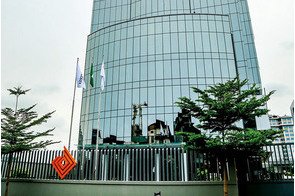Nigeria among worst-performing nations on World Bank's Human Capital Index

Summary
The Human Capital Index measures how much countries lose in economic productivity by underinvesting in their people.
Nigeria has been ranked among the worst-performing countries in the World Bank's first-ever Human Capital Index (HCI), released today at the ongoing World Bank-IMF Annual Meetings, in Bali, Indonesia. The HCI, which is part of the bank's Human Capital Project (HCP), ranks Nigeria in the 152nd position out of 157 countries.
The World Bank says human capital – the knowledge, skills, and health that people accumulate over their lives – has been a key factor behind the sustained economic growth and poverty reduction rates of many countries in the 20th century, especially East Asia. However, governments are not currently making effective investments in their people to ensure a healthy, educated, and resilient population ready for the workplace of the future.
At the unveiling of the report today, Jim Yong Kim, President of the World Bank, said educational outcomes in Nigeria are too poor.
“Nigeria, unfortunately, ranks 152 out of 157 countries," Kim said. "We provide quite a bit of support for Nigeria in terms of the health budget. But we feel that the overall spending on health is far too low, 0.76% of GDP. And also, the educational outcomes in Nigeria are very poor.”
The HCI measures how much countries lose in economic productivity by underinvesting in their people. Specifically, the index measures the amount of human capital that a child born today can expect to attain by age 18, given the risks of poor health and education that prevail in the country where he or she lives. On a scale of 0 to 1, Nigeria scored 0.34, lower than the Sub-Saharan Africa (SSA) average of 0.40 and global average of 0.57.
While American students spend an average of 13.3 years in education by age 18, average expected years of schooling in Nigeria are 8.2 years. This is lower than Ghana's 11.6 years. Ghana's HCI is 0.44, above the SSA average.
Singapore topped the ranking, having being highly rated for its universal healthcare system, educational outcomes and life expectancy figures. The other countries in the top five are South Korea, Japan, Hong Kong and Finland. The UK is ranked 15th while the United States is 27th.
Nigeria performs only relatively better than Liberia, Mali, Niger, South Sudan and Chad, which is ranked at the bottom.
The World Bank’s Human Capital Project recognizes human capital as driver of inclusive growth.
Related
-
Eliminating inequality as a sustainable development challenge in Africa
Access Bank remains a pioneer in the ideation and execution of several sustainability drivers that foster equity and aim at ...
-
Rethinking Nigeria's development for people-centred outcomes
Infrastructure becomes truly developmental when it enhances human capabilities and is supported by institutional frameworks ...
-
Kuwaiti fund for African Development opens call for nominations
The $1 million Al-Sumait Prize rewards innovative and inspiring initiatives and research.









